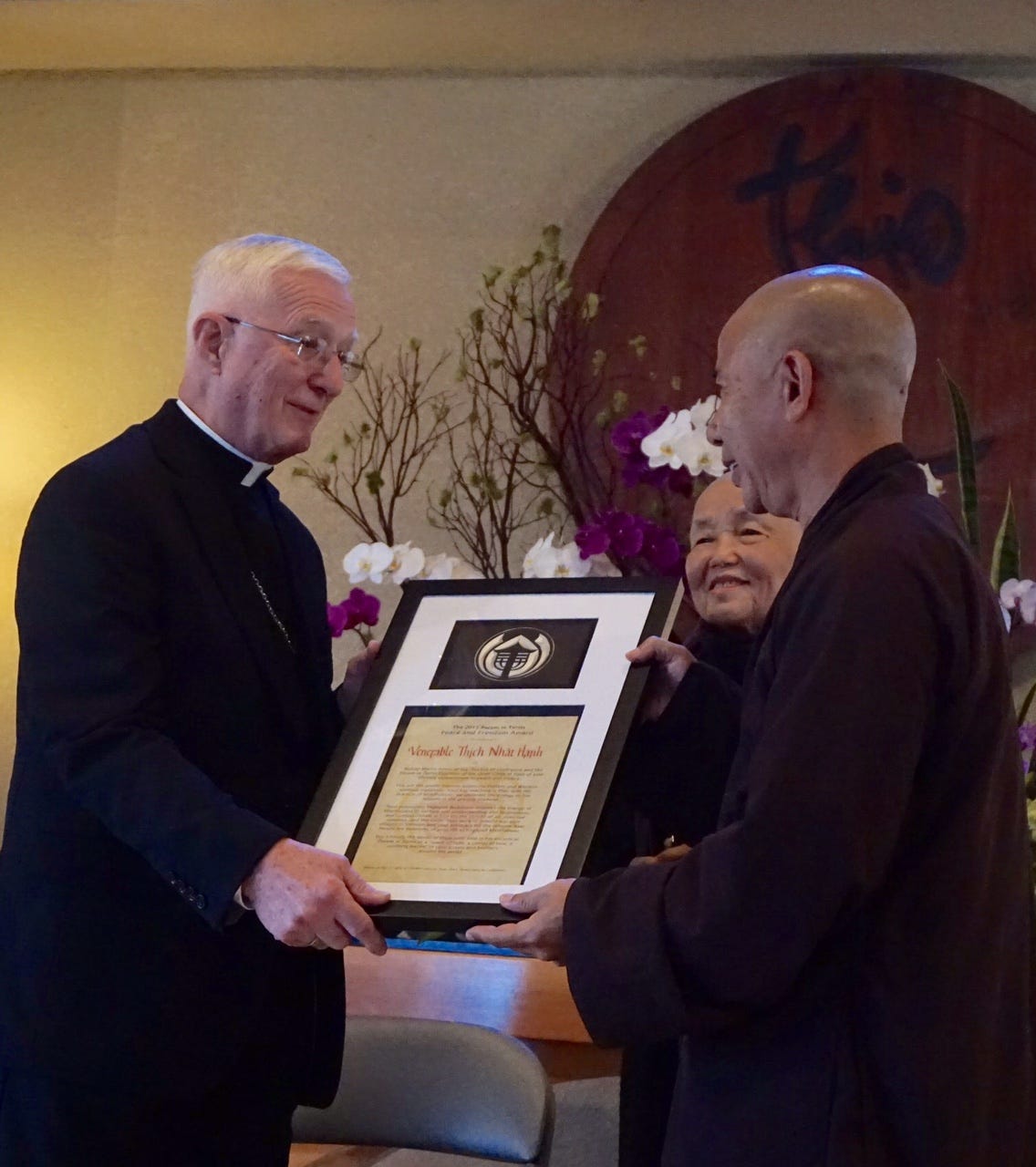A course with Thay Phap Nhat
Date(s) - 19.Nov.2015 - 22.Nov.2015
Address
Schaumburgweg 3
Waldbröl
North Rhine-Westphalia
Cologne
51545
German
Sometimes the desire, or the intention, to make someone happy is not
enough; we must also have the ability to do it.
This ability to bring
happiness into someone’s life is an act of love, something that we can
learn and cultivate. We can do this by looking deeply and recognising
the suffering in ourselves. By recognising, embracing and transforming
our own suffering, we love ourselves.
When we are able to love ourselves
then we are also able to give our love to others. The practice of
mindfulness, which we will cultivate in this course through walking and
sitting meditation as well as deep relaxation, will help us to follow
the path of true love.
Course language: English with translation into German
Der Pfad Zu Wahrer Liebe
Manchmal reicht die Intention oder der Wille, jemanden glücklich zu
machen, nicht aus, und wir benötigen auch die Fähigkeit, Glück zu
bringen.
Diese Fähigkeit Liebe zu bringen, ist der Akt der Liebe, eine
Fähigkeit, die wir erlernen und kultivieren können. Wir können dies tun,
indem wir tief schauen und das Leiden in uns selbst erkennen. Indem wir
unser Leiden und unsere Schwierigkeiten erkennen,
umarmen und transformieren, lernen wir, uns selbst zu lieben.
Wenn wir
fähig sind, uns selbst Liebe zu schenken, dann sind wir auch fähig,
anderen Liebe anzubieten. Mit der Praxis der Achtsamkeit, die wir
während dieses Kurses durch die Praxis des Sitzens, Gehens und der
Entspannung kultivieren, können wir sicher auf dem Pfad wahrer Liebe
reisen.
Kurssprache: Englisch mit deutscher Übersetzung
registration hier
https://eiab.eu/?event=k15104-der-pfad-zu-wahrer-liebe




























